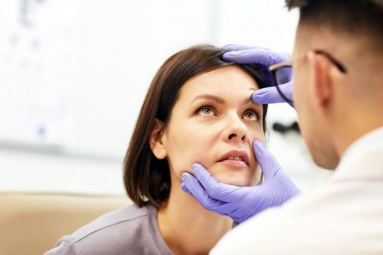
(Image source from: Canva.com)
During pregnancy, many changes occur in the woman's body, one of the most important of which is the increased need for iron. Iron requirements increase approximately tenfold during pregnancy to support the growing fetus and meet the mother's own iron needs. However, many women begin pregnancy with low iron stores, making it difficult to meet high needs. Experts estimate that more than 80 percent of pregnant women suffer from iron deficiency in the third trimester, which can lead to iron deficiency anemia. Anemia during pregnancy poses a risk to both mother and baby. Hemoglobin is a protein found in red blood cells that carries oxygen from the lungs to the rest of the body. During pregnancy, the amount of blood in a woman's body increases significantly to nourish and support the developing fetus. The increase in blood volume increases the need for iron, which is required for the production of hemoglobin. If a pregnant woman does not have enough iron, her body cannot produce enough hemoglobin, leading to anemia. Iron deficiency anemia can cause symptoms such as fatigue, weakness and an increased risk of infections. More severe cases can lead to complications such as premature birth, low birth weight and maternal death.
Symptoms of iron deficiency during pregnancy:
In order to avoid complications, early detection of iron deficiency is important. The most common symptoms of iron deficiency anemia during pregnancy are:
- Constant fatigue and weakness.
- Pale skin and brittle nails.
- Shortness of breath
- Dizziness or lightheadedness
- Fast or irregular heartbeat
- Difficulty focusing or concentrating.
Nutritional recommendations to increase hemoglobin levels:
Consuming iron-rich foods: Include a variety of iron-rich foods in your diet. These include lean meats like beef, chicken and turkey, as well as seafood, beans, lentils, spinach and iron-fortified grains. Animal iron (heme iron) is absorbed more efficiently than plant iron (non-heme iron), but both are necessary to increase iron levels.
The combination of iron and vitamin C: Vitamin C increases the absorption of iron from non-heme plant sources. To improve iron absorption, combine iron-rich foods with foods rich in vitamin C, such as oranges, lemons, peppers, tomatoes, and strawberries.
Eat foods rich in folic acid: Folic acid (vitamin B9) is essential for the production of red blood cells. Folate-rich foods such as green leafy vegetables, beans, peas and nuts should also be included in your diet to support overall blood health.
Avoid iron absorption inhibitors: Some foods and drinks can interfere with iron absorption. If you're on an iron-rich diet, you should limit coffee, tea, and calcium-rich foods. Taking these products separately can help maximize iron absorption from your diet.
The role of dietary supplements and medical advice:
In many cases, particularly in women who enter pregnancy with low iron stores, dietary changes alone may not be enough to meet the high iron requirements of pregnancy. In these cases, iron supplements are often recommended. Most prenatal vitamins contain some iron, but additional iron supplements may be necessary depending on the severity of the deficiency. However, it is important to only take iron supplements under medical guidance as too much iron can cause side effects such as constipation, nausea and, in rare cases, poisoning. While proper nutrition is essential, supplements are often necessary to ensure the body receives adequate iron, especially in late pregnancy. Regular medical examinations and monitoring of hemoglobin levels can help determine the need for additional nutritional supplementation.
Tips to Control Iron Levels During Pregnancy:
In addition to dietary changes and supplements, there are several lifestyle adjustments that can help maintain healthy iron levels during pregnancy.
Regular Checkups: Regular blood tests are very important during pregnancy. These tests help monitor hemoglobin levels and assess whether dietary changes or supplements are effective in combating hemoglobin deficiency. Based on the results, your doctor may adjust your treatment plan.
Stay hydrated: Proper hydration supports overall health and ensures important nutrients like iron are transported efficiently throughout the body. Drink plenty of water to stay hydrated.
Moderate exercise: Light to moderate physical activity helps improve blood circulation and overall health. However, avoid excessive or intense exercise as this can worsen fatigue and iron deficiency.







